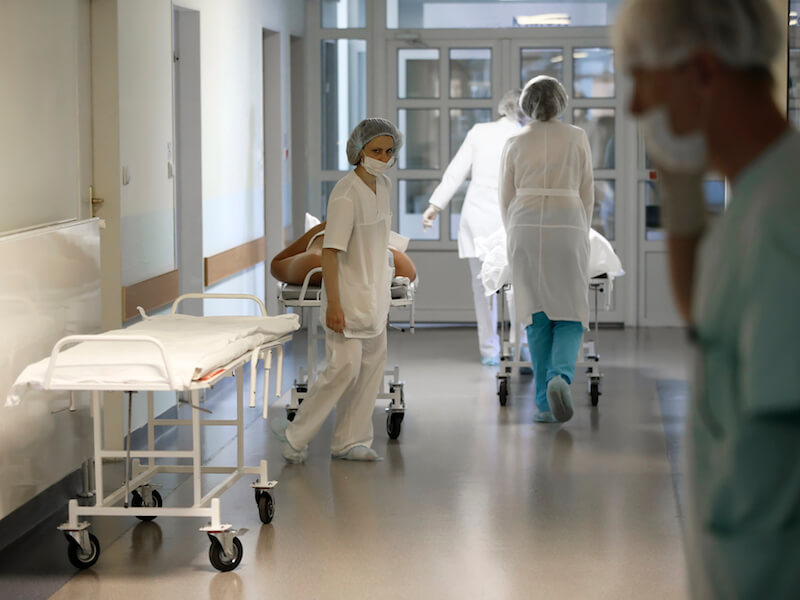
Having to visit the ER can be financially and personally costly. What if you could minimize your risk of falls, accidents, depression, anxiety, and even dementia while also eliminating visits to the ER.
Surfacing research makes the case that, for individuals with severe hearing loss, using their hearing aid could be the difference between staying connected and healthy and ending up spending many evenings in the emergency room.
The Study
This University of Michigan study assembled participants that ranged from 65-85. Each had significant loss of hearing. But out of all of those who participated, only 45% of them used their hearing aids regularly.
This is on par with similar studies which have shown that only about 30% of people who have hearing aids actually use them.
Of the 585 people in the hearing aid group, 12 fewer people ended up in the ER or non-elective hospital stay.
This may seem like a small number. But it’s statistically substantial.
And that’s not all. They also discovered that those who used their hearing aids spend, on average, one fewer day in the hospital. They were more likely to show up for regular appointments with their doctors, which most likely decreased their time in ER.
How Can Emergency Care Visits be Reduced by Wearing Hearing Aids?
First for the obvious one. If a person is staying on top of their health, they’re more likely to stay out of ER.
Other research has shown that when individuals with hearing loss wear their hearing aids, they stay more connected to friends, family, and the community. This can result in both a stronger motivation to keep that doctor’s appointment and better access to services and assistance to get to appointments.
And driving is safer when you can hear, so you will have more confidence if you are bringing yourself to your appointment.
In addition, a U.S. study revealed that those with hearing loss who don’t use their hearing aid are twice as likely to be depressed. Health concerns related to lack of self care is commonly an outcome of depression.
The danger of falling and dementia are, as outlined by numerous studies, also reduced by wearing your hearing aids. The part of the brain that’s responsible for hearing will start to decline from lack of use as hearing declines. With time, this can spread through the brain. As this occurs, people often experience dementia symptoms and the disorientation and lack of balance connected with falls.
Falls are one of the major causes of death among individuals over 65, and the consequent hospital stays last twice as long.
Hearing aids reduce visits to the ER for these reasons amongst others.
Why do so Many People Neglect Wearing Hearing Aids?
It’s hard to come up with a valid excuse.
Fear of appearing old is one major reason why some individuals don’t use their hearing aids. This perception remains in spite of the fact that about 25% of individuals over 65 have significant hearing loss, and 50% of those 75 and older have it. Hearing impairment isn’t rare. It happens to lots of people. Additionally, hearing loss is increasing even with 20-year-olds because of earbuds and the increase in noise pollution.
Ironically, constantly asking people to repeat what they said often makes a person appear a lot older than they are.
Some individuals cite the costs of hearing aids. However, financing is available for hearing aids and costs have come down in the past few years.
Some individuals don’t like the way hearing aids sound. If this is a problem for you, your hearing specialist can help you understand what settings work best in different situations. Hearing aids sometimes need numerous fittings before they are just right.
Schedule an appointment with your hearing specialist so we can help you feel more comfortable wearing your hearing aids.